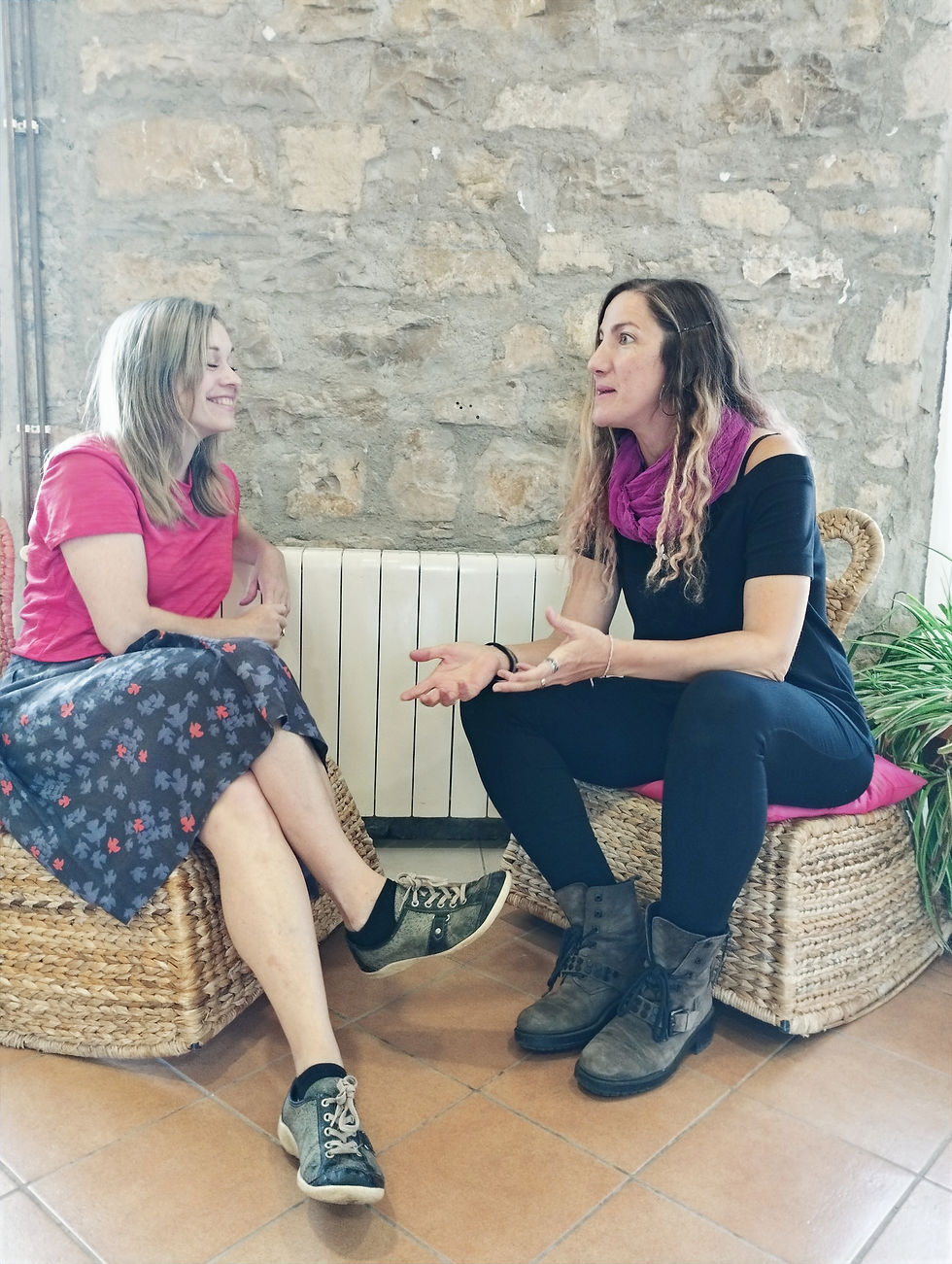Learning English Through Theatre: An Interview with Danielle Balfour-Jones
- genevieveshaw
- Oct 22, 2025
- 4 min read
LaLaOpenEdu’s interview series explores creative ways to teach English through music, play, and culture. Each conversation highlights educators and artists who are reimagining how children learn language — naturally, playfully, and through the arts.

Danielle Balfour-Jones is the founder and co-director of Funengo, a creative education company that brings English to life through hands-on learning experiences — from theatre and storytelling to science and the arts — and performs original shows in schools and theatres across Catalonia. She is also a co-founder of LaLaOpenEdu, where she helps shape our shared vision of teaching English through music, play, and culture.
We spoke with Danielle about how theatre inspires confidence, creativity, and authentic language learning — and why she believes play should be at the heart of every classroom.
Finding Language Through Passion
What first inspired you to use theatre and drama as a way to teach English to children?
“When I first came to Catalonia, I spoke very little Spanish and absolutely no Catalan,” Danielle recalls. “I took classes, but I didn’t really progress until I joined a lindy-hop group and a choir. Once I followed my own interests, I began to feel my communication really improving. That experience shaped the whole Funengo ethos — learning language through doing, through living it.”
Theatre, she explains, was her first love:
“I’ve been on stage since I was three. As a child, I wasn’t confident, but theatre helped me find my voice. That’s really what Funengo is about — building confidence through communication.”
Play as a Natural Language
How do children respond differently when they’re playing a role rather than sitting in a classroom?
“The moment they’re playing, they stop seeing English as a subject. It’s no longer ‘education’ — it’s just fun,” Danielle says. “Play removes the formality, and that makes learning natural. Children learn their first language through play — and adults can too, if we let ourselves!”
She adds that theatre gives children emotional awareness as well as language skills.
“When they take on a role, they learn to separate their emotions — to say, ‘I feel angry, but my character doesn’t.’ And when teachers play along, it levels the classroom. Suddenly, it’s not teacher versus student — it’s a shared world of imagination.”

Stories that Speak to Everyone
Funengo creates original performances. How does that help children connect with English and culture?
“Even when the story isn’t familiar, our shows are visual, musical, and full of energy — children are drawn in right away,” Danielle explains. “Sometimes parents say, ‘I couldn’t follow the show, but my four-year-old retold me the whole story in English!’”
She laughs. “Children often enter the imaginary world more easily than adults. They don’t overthink it — they just dive in. That’s where real understanding happens.”
Building Confidence on Stage
What changes do you notice in children’s confidence when they perform in front of an audience?
“Moving from classroom to stage is huge,” Danielle says. “Some freeze completely at first — and that’s okay. Theatre gives them tools to manage that fear. The emotions are the same as in their native language, but they don’t yet have the words to express them in English. We work on that.”
Rehearsing in familiar environments, recording videos, or performing to a small group helps ease that transition. “Even if a child doesn’t speak on stage the first time, they’ve still learned something. That courage grows.”
A Shared Mission
As a co-founder of LaLaOpenEdu, what excites you most about the project?
“It’s totally what we believe in!” she says. “Funengo grew from classroom experience, not academic research, so I’m thrilled that LaLaOpenEdu is exploring both. It reminds us teachers to keep learning too — not just teaching. It’s going to re-energise that side of me.”
Challenges and Magic Moments
What are the biggest challenges in combining English teaching with theatre?
“When kids forget their lines in English, they don’t yet have the resources to improvise,” Danielle explains. “So I focus on context — who they are, where they are, why they’re there. If they understand the situation, they can act it out and the words will come. That’s natural language learning.”
And the best moments?
“When a child suddenly gets it — when you see that sparkle of understanding — it’s magic. It’s why we do this.”
Looking Ahead
How do you see theatre-based English learning evolving in the future?
“I’d love to see more teachers using theatre in everyday lessons,” she says. “Not necessarily putting on plays, but using games and drama techniques to make English come alive. Many teachers are nervous because they’ve never done theatre themselves.”
To spark that transformation, Funengo is creating an immersive training programme for teachers — a week of creative learning where educators experience theatre-in-the-classroom techniques firsthand and return ready to bring that same magic into their classrooms.
“If teachers feel confident and playful, they’ll pass that energy on to their students,” Danielle smiles. “That’s the future I’d love to see — where English isn’t just taught, but lived, sung, and performed.”
📍 About LaLaOpenEdu LaLaOpenEdu is a collaborative platform that brings together educators, musicians, and artists to teach English through music, play, and culture. Our mission is to create open educational resources that connect language learning with creativity and local traditions across Catalonia.






Comments